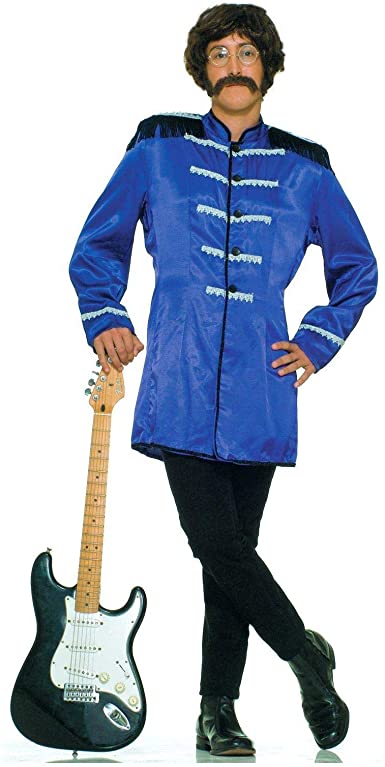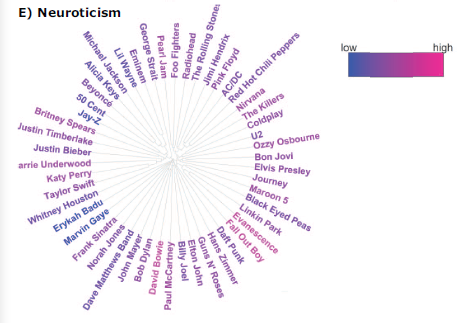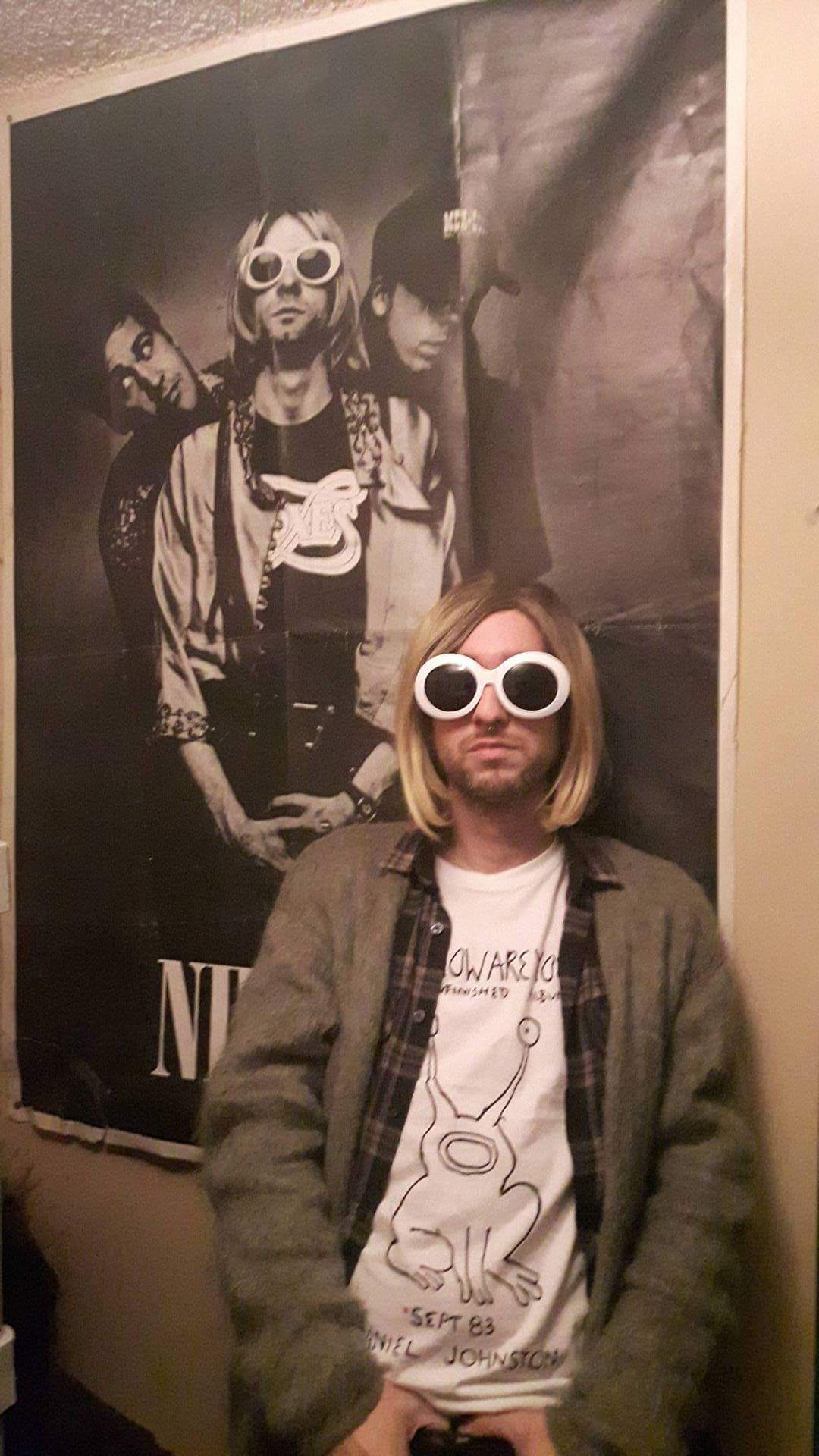
Bob Diddly asked the existential question:
“Who Do You Love?”
And it turns out that when it comes to music, we now have the answer – at least when it comes to the artists we adore, and the music they make. A new research study, conducted by four PhDs, from Israel’s Bar Ilan University reaches this fascinating conclusion:
People prefer the music of artists who have publicly observable personalities (“personas”) similar to their own personality traits (the “self-congruity effect of music”).
In fact, they conducted three extensive studies comprised of more than 80,000 respondents that ascertained it is indeed possible to predict music tastes and artist connection via personality, rather than the other factors we so typically use in music research: sex, age, ethnicity, station preference, etc. The study used a list of 50 artists across genres for this experiment, and the results were telling.
The theory behind the research is that while hooks, beat, guitar solos, and pounding drums all may play a role in musical preferences, there’s a more powerful psychological connection between the bands we love – and ourselves. This “self-congruity” suggests we bond with musical artists that have similar personality traits to our own. And it transcends all the demographic groupings us radio programmers and consultants pore over on those music test spreadsheets.
 Among other things, the study’s authors also analyzed the lyrics of songs written by these artists for insights into their psyches – attitudes, beliefs, values, and their storylines. They theorized that even for artists that don’t write all their songs (Taylor Swift, Justin Bieber) or for musicians who often collaborate with others (Elton John, Billy Joel), there’s an inherent endorsement of a song’s lyrics.
Among other things, the study’s authors also analyzed the lyrics of songs written by these artists for insights into their psyches – attitudes, beliefs, values, and their storylines. They theorized that even for artists that don’t write all their songs (Taylor Swift, Justin Bieber) or for musicians who often collaborate with others (Elton John, Billy Joel), there’s an inherent endorsement of a song’s lyrics.
Qualities like “openness” were attributed to more complex artists like David Bowie, Bob Dylan, and Radiohead; “conscientiousness” was a more common trait for soulful and mellow artists such as Marvin Gaye, George Strait, and Erykah Badu; “extraversion” scores ran highest in the hip-hop and pop genres, including Jay-Z, Beiber, and Lil Wayne; and finally, what they called “agreeable,” more common in artists like Norah Jones, Dave Matthews, and John Mayer.
Finally, “neuroticism” was more likely associated with metal, hard rock, and alternative artists, and included Ozzy Osbourne, Nirvana, the Killers, and Fall Out Boy. In fact, the “Wheel of Neuroticism” is below – artists that fall into this group are toward the red-violet zone:

So, this idea that musical preference is more personality than demographic-driven is something to consider. And the research should send a message to programmers and researchers alike. For years in radio, the promise of psychographic-based research has always been tantalizing, but perhaps rating reports always seem to swing things back to the more simplistic differentiators: age, gender, and ethnicity.
The researchers reach three key conclusions about “self-congruity” that are helpful in our understanding of listener loyalties to music makers:
- Consumers seek out and identify with musical artists who display personality traits similar to their own.
- Following an artist socially and listening to their music can actually shape one’s personality over time (especially if a connection is formed during adolescence).
- While the artist writes music to suit his/her tastes and proclivities, fans appreciate various phases (ex: the Beatles’ psychedelic period, the many personas of David Bowie, etc.). because they share underlying personality preferences.
But here’s something potentially even more impactful that I found buried near the end of this research abstract revolving around gender:
“…the first evidence that listeners tend to prefer music from artists of the same sex…”
They note that gender fit between fans and artists is a “significant predictor of musical preferences.”
For radio formats and the professionals tasked with programming them, this might be the most important finding in this research study. And it has implications in recent conversations about specific formats – notably country – where the radio and artists perhaps haven’t been on the same page.
While not mentioned by the researchers, you have to wonder if this pattern hasn’t intensified since the beginnings of the #MeToo movement and heightened sexual awareness.
 Nonetheless, for formats where women contribute a large percentage of listening (like country, CHR, Hot AC), this data should provide the foundation for further discussion and debate.
Nonetheless, for formats where women contribute a large percentage of listening (like country, CHR, Hot AC), this data should provide the foundation for further discussion and debate.
For someone like me who’s been involved in audience research for well more than four decades, I had hoped that music testing would have advanced beyond playing hundreds of short hooks to 90 people using simple numerical rating scales to vote for favorites and “stiffs.”
Maybe it just has.
The research was written up in a story from StudyFinds. It linked to the study abstract from the American Psychological Association which you can purchase here for $14.95.
- What To Do If Your Radio Station Goes Through A Midlife Crisis - April 25, 2025
- A 2020 Lesson?It Could All Be Gone In A Flash - April 24, 2025
- How AI Can Give Radio Personalities More…PERSONALITY - April 23, 2025




Interesting research, Fred, and here’s my counterproposition: The more someone really loves music, the less likely they are to fit into these guys’ model. How else would I, a white septuagenarian, love not only Fred Neil and the Velvet Underground but also Miles Davis, Joni Mitchell, Rashid Taha, and Indian classical music?
“The exception proves the rule,” yeah, not. Still, PDs have to work with something, so as Jody Foster’s character in Contact was told by her father: “Small steps, Ellie. Small steps.”
John, like a lot of research, the results are dependent on the averages, rather than the anomalies. I was surprised their data held up as well as it apparently did. That said, I’ve seen enough head-scratchers in auditorium tests and M Scores to realize that preferences aren’t always linear, nor are they predictable. It was reassuring to see a respected team of researchers tackle an issue like this. Thanks for the comment.
Over the course of my career I’ve had the pleasure of meeting – among others – Don Henley, Glen Burtnik, Ray Davies and Simple Minds’ Jim Kerr. They each did literal double takes before telling me that I resembled their colleague or their ex (Patty Smyth and Chrissie Hynde are my two rock doppelgängers, depending on the lighting). And yes, I like the music of both!
Well, there you go! Thanks, Marylee.
Who is this Bob (sic) Diddly? I think spell check did violence to the stage name of Ellas McDaniel.
Thanks for sharing and summarizing this insightful research. Goes a long way towards explaining the irrepressible appeal of “oldies,” too!